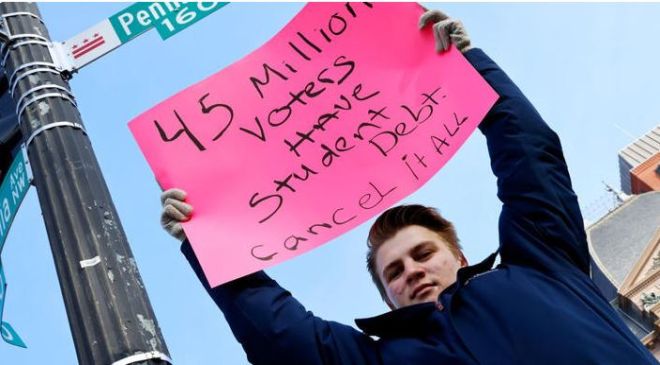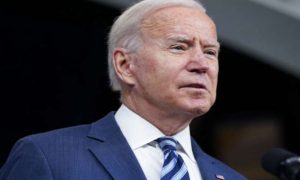VITALIY KATSENELSON’S CONTRARIAN EDGE
My wife Rachel and I had our son Jonah in 2001. I was 28 and she was 23. Rachel quit her job and became a stay-at-home mom and part-time student at CU Denver, where she was finishing her bachelor’s degree. Both Rachel and I had immigrated to the U.S. 10 years earlier from the former Soviet Union. I had a master’s degree in finance and a CFA license but was just a few years into my career as an analyst. I was working for a small investment firm, IMA, making $40,000 a year. As soon as Jonah was born, we opened a custodial educational account and started saving $2,000 a year for Jonah’s future education.
For us, $2,000 was then an enormous amount of money — around 7% of my after-tax income. We lived an extremely modest lifestyle. We were still paying off our college debt. This education money could have let us afford restaurants, a daily trip to Starbucks, or another vacation or two. We bought used cars and drove them for years. A friend of mine gave us budgeting advice that changed our lives. We felt it was our responsibility as parents to make sure that our son went to college and was not burdened by college debt. The value of education had been drummed into our heads by our parents. We wanted to give Jonah every advantage he could get in this country.
We opened similar education accounts for our daughters Hannah and Mia Sarah when they were born in 2005 and 2014. Though my income was growing as my career advanced, funding these accounts was always an effort. We needed more bedrooms so we bought a house. With children came unending new expenses: diapers; daycare; after-school activities, clothes.
As I look back at those years, though they were often trying, they were some of the happiest of our lives. This is the behavior I’d want my kids to replicate: live within your means. Don’t get into credit card debt; pay off debts quickly. Save for a rainy day. Create a budget, categorizing and mindfully allocating your spending to things that are important to you. But making sure you take care of your kids’ education is at the top of the list. In my advice to my kids, I’d throw in some Stoic wisdom, in that happiness comes from wanting what you have. Once your basic needs are taken care of, material things bring little happiness.
But now, President Joe Biden, with an executive order (a decision that did not go through Congress) has “forgiven” $10,000 or $20,000 of many students’ loans. Aside from the fact that every member of my household, including my 8-year-old daughter Mia Sarah, is now on the hook for about $1,000 for this “forgiveness”, it feels like what Rachel and I have been trying to teach our kids has been thrown out the window.
Loan forgiveness is a slippery slope. Some will argue it started with Uncle Sam bailing out the big banks during the Great Financial Crisis. That is debatable, and there are important differences: The U.S. government then did not “forgive” the banks or give them money but provided high-interest loans. Uncle Sam came out ahead in the end. Arguably, if the U.S. had not bailed out its financial institutions, the U.S. economy would have crumbled. These nuances are somewhat lost, as the public looks at the government’s actions in the crisis as a bailout that set a dangerous precedent. Yes, the government came out ahead, but it could have lost money.
Then, during the pandemic, the federal government threw trillions of dollars at anyone and anything with a bank account. This time Washington wanted to make sure that everyone got the money (not just the fat cats on Wall Street), but due to its ineptitude a lot of this money was misappropriated. Some were showered with more paycheck protection money than others.
Now comes student debt forgiveness. Anyone who went to college, has student loan debt, and makes less than $125,000 a year receives “forgiveness” from Uncle Sam — and my daughter Mia Sarah.
Endless forgiveness
This executive order doesn’t even attempt to fix the core issue of runaway inflation in college tuition. In fact, it will likely make tuition inflation even worse by throwing more taxpayer money at colleges and lead to endless “forgiveness” in the future.
And what about those who never went to college and so have no college debt to forgive? This where the slippery slope becomes a landslide. Interest rates rise and mortgage interest cripples homeowners? No worries, Uncle Sam and Mia Sarah will come to the rescue; they’ll forgive those loans. What if you don’t own a house but have a mountain of credit card debt? Don’t worry, you’ll be absolved too — no one will be left behind.
In the meantime, people who are like Rachel and I were 20 years ago — who give up vacations, new cars, Starbucks frappuccinos and Chipotle burritos to save for their offsprings’ education — are now being incentivized to do the opposite. Why bother?
A free-market economy cannot exist without failure.
Making choices as to what college to attend, selecting a major, and deciding how much debt to take on falls into the personal responsibility bucket, too. When the government decides to forgive student loans (or mortgages and credit card debt), that is a straight wealth transfer to those now absolved from their debt (their past choices) from the rest of the society, who made painful, responsible choices, and from future generations (the Mia Sarahs and those yet to be born).
The U.S. has earned the right for its dollar to be a world reserve currency. It was earned because we had the strongest free market economy. There is a good reason why most innovation doesn’t take place in Europe. The U.S. is where people take risks, enjoy the fruits of their successes and pay the price of their failures. A free-market economy cannot exist without failure.
Why do companies fail and empires collapse? They become arrogant. They forget that their success was earned by sweat and paranoia. They start taking their greatness for granted. They become fat, lazy and contented. The U.S. is not immune from the laws of economics. I explored in detail how this happens and what we as value investors are doing to protect ourselves in a past article.
As the U.S. government adds more debt — and likely raises taxes — inflation will not be transitory but will become a nightmare of everyday life and our economy will weaken. With every “forgiveness,” the U.S. dollar will become a less-attractive currency, as it will buy fewer and fewer goods. The dollar will become less-distinguishable from the currencies of any other troubled country.
As an investor who is hired to preserve and grow my clients’ nest eggs, I’m finding, unfortunately, that diversifying away from the U.S. dollar is increasingly a responsible decision.





























